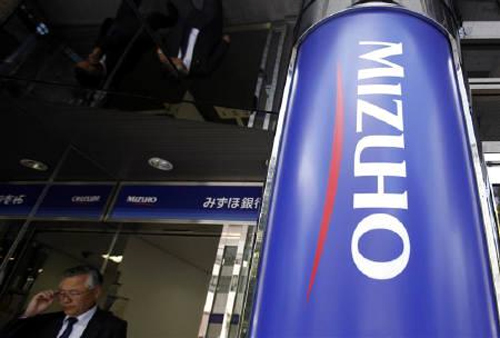Burma’s Foreign Bank Licensing Committee awarded preliminary licenses to nine foreign banks on Wednesday, and Japanese banks were by far the biggest winners. The license application process was kicked-off in May when the Burmese government sent letters to 40 foreign banks inviting them to apply for a license—a coveted privilege that carries the potential to give foreign financial institutions a lucrative foothold in Burma’s banking sector.
Japan’s three largest banks—Sumitomo Mitsui Banking Corporation; Bank of Tokyo-Mitsubishi UFJ; and Mizuho Bank—were among the nine lucky banks awarded licenses by the government, which reportedly conducted an extensive screening process led by a committee of Burmese government officials and foreign consultants. Given the high stakes involved, the process was extremely competitive, with 25 banks from 12 different countries eventually submitting applications.
Although some local banks and individuals are concerned that foreign banks will gobble up the local banking sector, there is also optimism among Burmese bankers and officials that foreign banks will promote the development of Burma’s financial sector by transferring technical skills to local players and injecting much-needed liquidity into local banks in the form of kyat-denominated loans. In addition, the Burmese government is keen to modernize its banking system by incorporating the latest technology, a crucial factor which contributed to the success of Japanese financial institutions this week.
The Japanese banks that received licenses are also among the world’s largest in terms of capital, and Burma is betting that Japanese banks will advance the government’s goal of boosting liquidity and increasing the capital stock of Burma’s thinly-capitalized financial system.
By contrast, China’s state-owned banks might boast more capital on their balance sheets, but many of them are also dangerously exposed to China’s shadow banking system and real estate bubble, which many economists predict will eventually saddle China’s banking system with unsustainable amounts of debt.
When the Foreign Bank Licensing Committee announced the successful foreign banks on Wednesday the committee insisted that its decisions were based on “detailed quantitative and qualitative criteria.” However, it’s quite possible that political imperatives played a determinative role in the committee’s decision process. Anti-China sentiment is still running high in Burma, whereas Japan is still viewed as a more “friendly” country—not to mention the fact that Japan was Burma’s largest source of foreign aid during the military era. Japan has also provided massive amounts of investment, foreign aid, and debt forgiveness to Burma since the country transitioned to a quasi-civilian government in 2011.
Indeed, Gwen Robinson’s recent Nikkei Asian Review article indicated that some analysts believe that Japan’s success this week may be connected to how Japanese officials felt snubbed by Burma’s recent decision to award several big infrastructure contracts to non-Japanese companies.
In particular, officials in Tokyo were convinced that Japanese companies would easily win last year’s bidding for a telecommunications license and the construction of Rangoon’s new international airport, but in both cases their hopes were dashed—and to add insult to injury, the airport contract was awarded to a consortium from Korea, Japan’s arch rival in many sectors.
[related]
Apparently, Burma’s bank licensing scheme is designed to support the country’s banking sector by prohibiting foreign involvement in retail banking on the one hand, while also requiring foreign banks to channel their kyat-denominated commercial loans through Burmese banks.
That is, foreign banks cannot extend kyat-denominated loans directly to local companies, but they are allowed to provide kyat loans to local banks. As a consequence, foreign licensees will need to partner with local banks in order to access the lucrative market of extending kyat-denominated loans to local enterprises. In doing so, the Burmese government expects that foreign banks will transfer the skills and technology which local banks will need to stand their ground against foreign banks if the financial sector is further liberalized.
Indeed, among the most important criteria considered by the license selection committee was the willingness expressed by foreign banks to train local staff, transfer critical technology, and cooperate with local banks. In her article, Gwen Robinson said that “It is understood that the Japanese banks pledged various programs to assist local banks, including the provision of training and, in the case of MUFG, setting up an education institute for banking personnel.”
The licensing system demonstrates that Burma is aiming to find a balance between enhancing the competitiveness of local banks and providing foreign banks with access to Burma’s red-hot economy, which the IMF projects will grow 8.5 percent in the current fiscal year. If successful, the scheme is expected to benefit both sides by attracting badly needed foreign investment while providing local banks with the protection, support, and time they need to compete with experienced and well-capitalized international financial institutions.
It’s unclear whether the selected foreign banks will focus on providing foreign-currency loans to foreign investors in Burma or devote more capital to indirectly providing kyat-denominated loans to local companies—partly because like many of Burma’s new laws it’s unclear how the licensing regime will work in practice. Moreover, regulations may be needed to implement the legal framework, which is governed by a recently-enacted Financial Institution Law that requires licensed foreign banks to hold at least US$75 million in capital and limits them to opening only one branch. The one-branch requirement is designed to alleviate concerns that foreign banks will monopolize the financial sector while encouraging foreign banks to cooperate with local and regional banks.
The nine lucky foreign banks now have 12 months to open a branch which complies with the Financial Institution Law, and if Burma’s Central Bank determines that a foreign bank has satisfied the law’s requirements within this time-frame it will receive a “final” license.
The five other foreign banks which obtained preliminary licenses this week included the following: Thailand’s Bangkok Bank; China’s Industrial and Commercial Bank of China; Malaysia’s Malayan Banking (Maybank); Australia & New Zealand Banking Group (ANZ); and two Singaporean banks—United Overseas Bank and Oversea-Chinese Banking Corporation.



